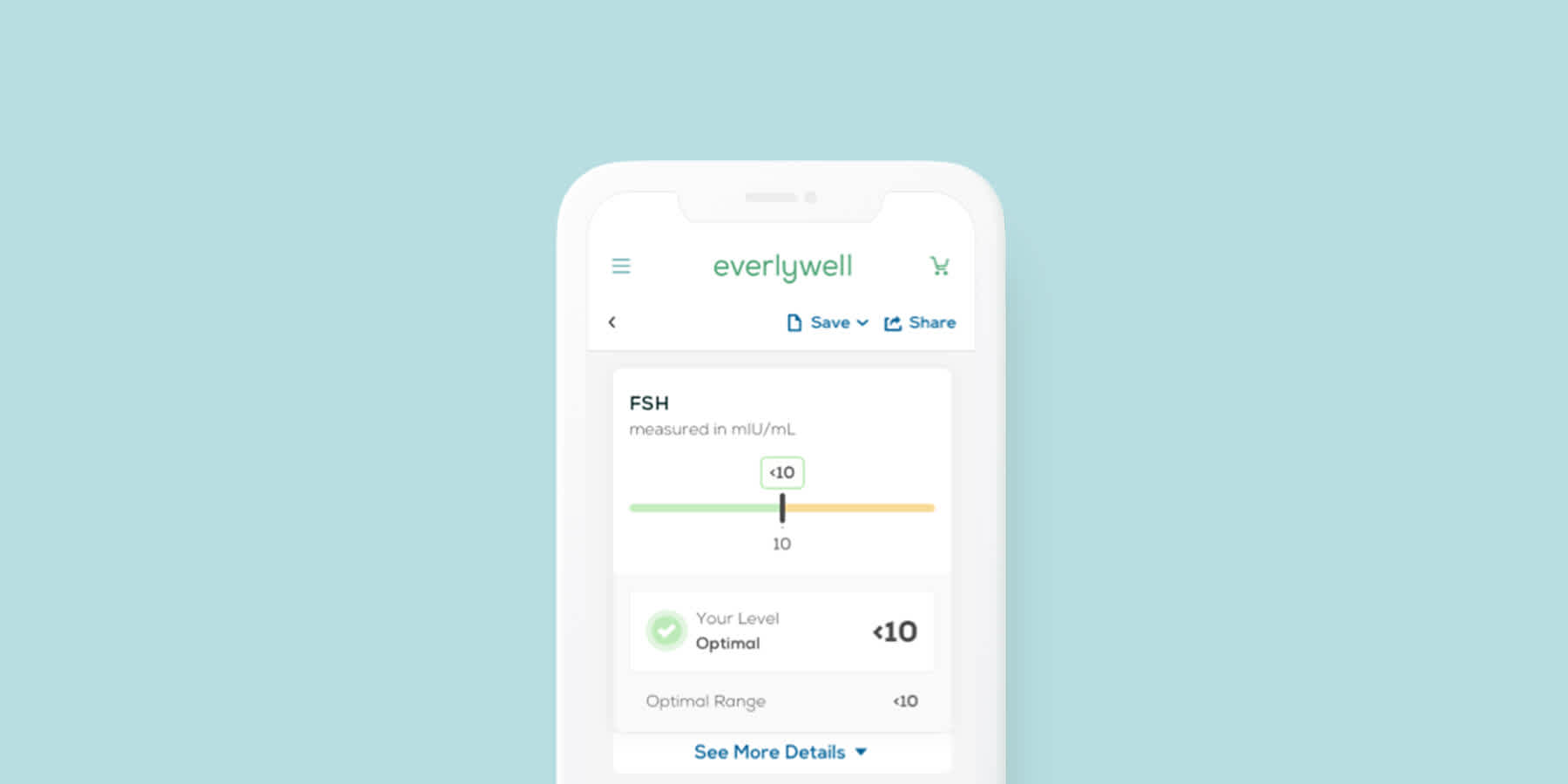
What is follicle-stimulating hormone (FSH)? FSH explained
Medically reviewed by Rosanna Sutherby, PharmD on March 15, 2021. To give you technically accurate, evidence-based information, content published on the Everlywell blog is reviewed by credentialed professionals with expertise in medical and bioscience fields.
Hormones play an important part in your overall wellness—they regulate everything from metabolism and growth to your response to stress. Follicle-stimulating hormone (FSH) plays an important role in sexual development and function, especially with regards to a woman's ovarian reserve (egg quantity). If you’re curious about what FSH is and how follicle-stimulating hormone relates to menopause, read on to learn more.
Want to better understand if your reproductive hormone levels may be normal? Shop the Everlywell at-home Fertility Test and get digital results days after you mail your sample to the lab for testing.
What is follicle-stimulating hormone (FSH)?
Follicle-stimulating hormone, or FSH, is the hormone released by the pituitary gland in the brain that tells the ovary it is time to mature eggs, produce estrogen, and get the eggs ready for ovulation.
What does follicle-stimulating hormone do?
Each month after puberty, your menstrual cycle is regulated by hormone signals released from the brain that tells your ovary to produce female hormones, including estrogen and progesterone. When estrogen is low, the brain sends FSH signals to the ovary to mature eggs, so more estrogen is made. Since estrogen is produced by eggs, the more eggs you have, the more estrogen your ovaries can make.
As you lose eggs or egg quality declines with age, the harder it is for the ovary to make estrogen. As a result, the brain must send more FSH to try to get more estrogen produced.
What FSH level indicates menopause?
Sometimes, healthcare providers measure elevated follicle-stimulating hormone (FSH) levels to assess for menopause. However, it’s important to note that one elevated FSH level result is not enough to confirm menopause considering estrogen production does not fall at a steady rate from day to day.
For context, here is a quick recap of the stages of menopause:
- Premenopause: When there is no change in cycle length and you can predict when you will get your period
- Early Transition: When your periods are no longer the same length each month
- Late Transition: When you have not had a period in 2-11 months
- Postmenopause: When you have not had a period in 12 months
When a woman’s FSH blood level is consistently elevated to 30 mIU/mL or higher, and she has not had a menstrual period for a year, it may be an indication that she has reached menopause.
Wondering if your menstrual changes indicate that menopause may be near? Learn more about your potential transition toward menopause with the Everlywell at-home Perimenopause Test. If you have already reached menopause and you want to make sure your hormones are on track, shop the at-home Postmenopause Test instead.
References
1. How Do I Know When I'm in Menopause?. North American Menopause Society. URL. Accessed March 15, 2021.
2. Menopause. Perelman School of Medicine. URL. Accessed March 15, 2021.
3. Follicle-stimulating hormone (FSH) blood test. Mount Sinai. URL. Accessed March 15, 2021.
4. Follicle-Stimulating Hormone (FSH) Levels Test. Medline Plus. URL. Accessed March 15, 2021.
5. What is FSH and how is it regulated?. Everlywell. URL. Accessed March 15, 2021.